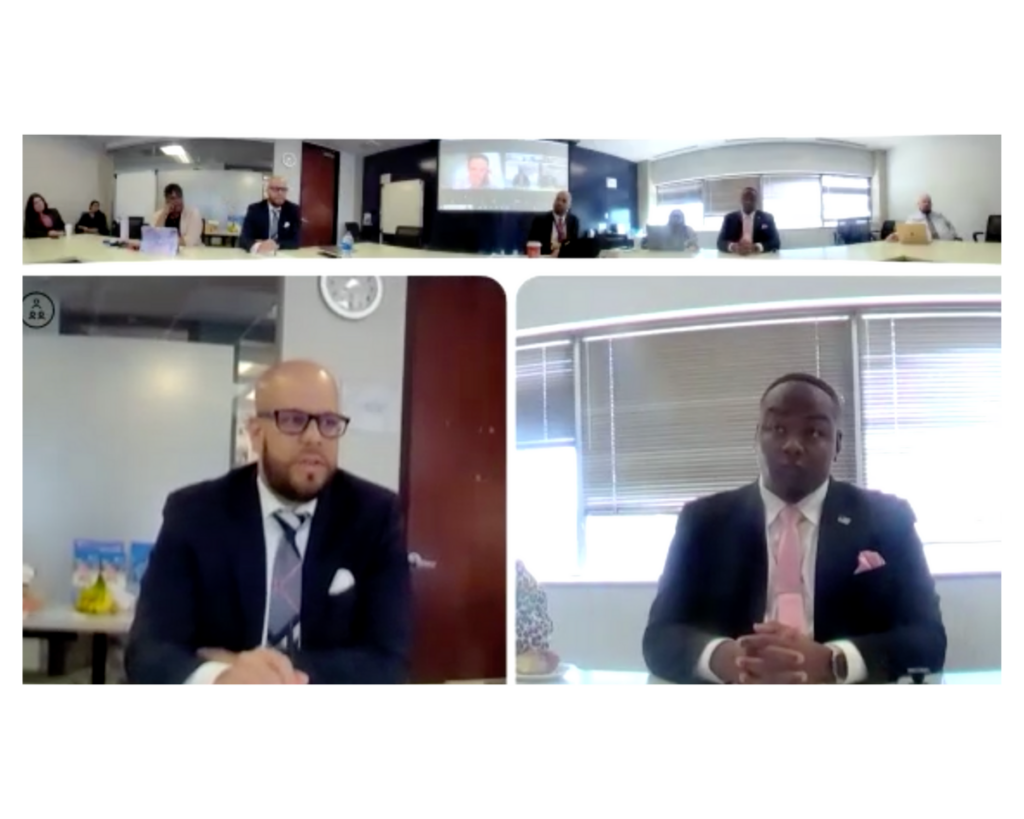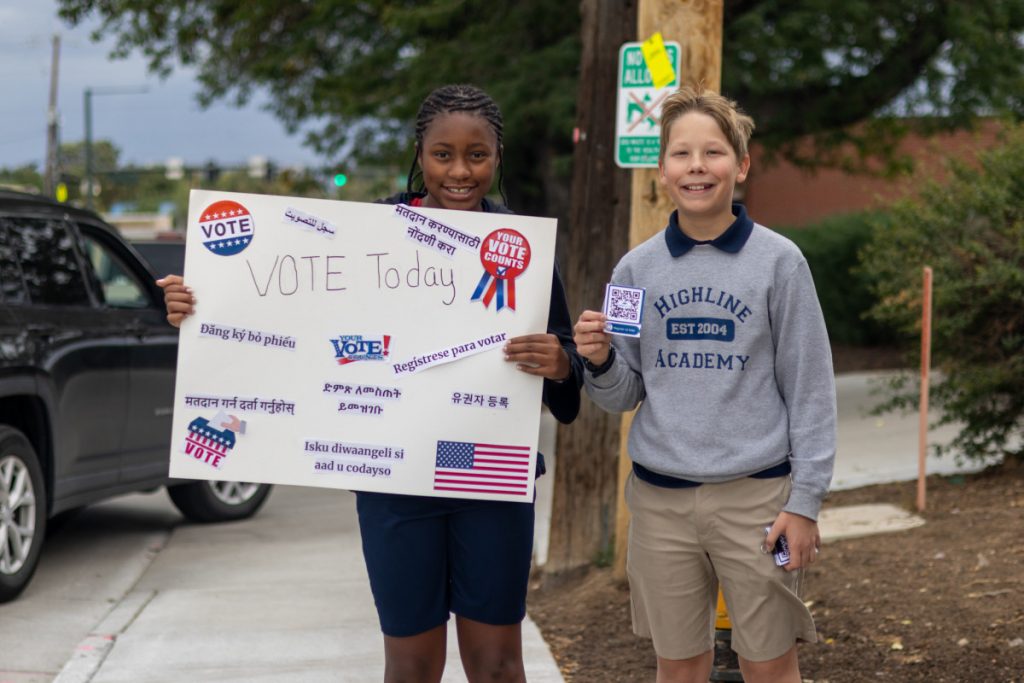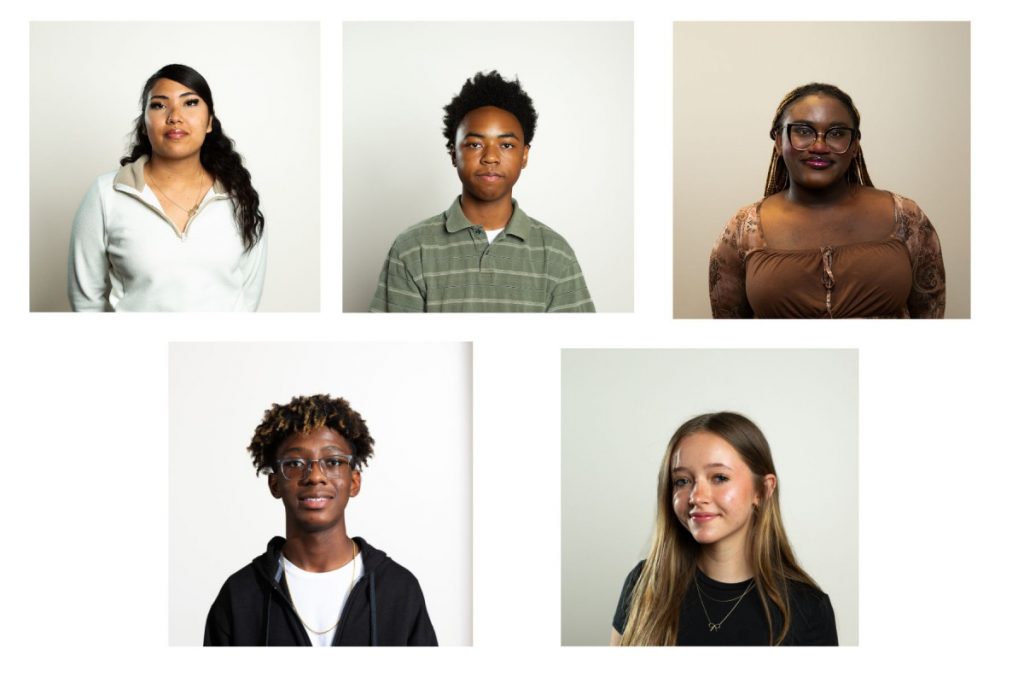Editor’s note: This article was written by Quentin Young, editor of Colorado Newsline. It has been reprinted with permission.
At one point during a closed-door meeting of the Denver school board, Vice President Auon’tai Anderson said, referring to so-called school resource officers, “We need to walk out of this room with something that we vote on today that reinstitutes SROs.”
There it was.
That was an explicit expression of the improper action taken by members of the Denver Public Schools Board of Education during a high-stakes March 23 meeting. They went on to do exactly what Anderson said they should do — which constituted a flagrant violation of Colorado Open Meetings Law.
Also known as the Sunshine Law, this statute says public bodies — school boards, city councils, the state General Assembly — can’t formulate public policy in secret. When a school board chooses to reinstate armed police officers in schools, members are formulating public policy.
When they emerged from their five-hour secret meeting into a public session and, without discussion, voted unanimously to bring armed cops back to school buildings, it was obvious to anyone paying attention that they had just violated the law. That’s why Colorado Newsline along with five other news organizations sued the school district for access to a recording of the meeting. The lawsuit was expertly handled by media coalition attorneys Rachael Johnson of Reporters Committee for Freedom of the Press and First Amendment specialist Steve Zansberg, president of the Colorado Freedom of Information Coalition. Developments in the case had broken consistently in favor of the plaintiffs, and on Friday, the school board voted to release a redacted recording of the meeting before being forced to by a court.
That’s a win for transparency. But it’s also a stark reminder of how readily public servants would conceal public business from the public — and the erosion of trust that results.
The March meeting involved critical public business. The previous day, a student at East High School shot and injured two deans there. Board members faced community pressure to reverse a policy that barred armed cops in Denver schools. On March 23 they held a special meeting and quickly moved into an executive session, or secret meeting.
Under Colorado Open Meetings Law, a public body can meet in secret only under specific, narrow circumstances, but the law says “No adoption of any proposed policy, position, resolution, rule, regulation, or formal action … shall occur at any executive session that is not open to the public.” The Colorado Supreme Court has further clarified that a public body can’t game the rules by informally adopting a policy in private then moving to open session for a rubber-stamp vote.
That is precisely what the Denver school board members did.
Denver school board members are the latest but hardly the only Colorado elected officials who show disdain for Sunshine.
As a video of the executive session shows, they agreed to bring armed police officers back to the schools, workshopped the language of the new policy, then went out in the open and took a predetermined vote — as if the vote alone somehow lived up to the principle that elected officials must be accountable to constituents.
What members of the public at the time couldn’t see, and what they can now watch, thanks to journalists’ insistence that the board exercise transparency, is the debate among officials as they decided on a matter of utmost importance. It is only with access to that conversation that residents can gauge if elected officials represented them well, asked the right questions, offered suitable answers, acted in the best interests of families, and protected the lives of children. It is only by seeing elected officials in action that voters can judge if they should be retained or replaced.
They also can now vividly see, by way of several emotionally charged exchanges, the tension that exists between Superintendent Alex Marrero and board members, a characteristic of district leadership that’s useful for school families to understand.
And yet the video falls short.
Whole passages of the meeting are lost to bad audio quality. At-large Director Scott Esserman, for example, had a lot to say during the meeting, but much of it isn’t adequately recorded. Colorado law requires public bodies to record executive sessions, which can help a judge determine if a meeting was held improperly and serves to inform the public if a legal challenge is upheld.
But this is an imperfect remedy, as demonstrated by the Denver schools recording, in which parts of the meeting are unintelligible. Some exchanges are lost for good, reinforcing the imperative that public officials should behave transparently up front, not just when prodded with legal inducements.
Denver school board members are the latest but hardly the only Colorado elected officials who show disdain for Sunshine. Members of the Colorado House appear to be responsible for what could be the most brazen and persistent violation of the open meetings law in memory. According to a lawsuit filed by two of the House’s own members, lawmakers regularly meet in private without public notice to discuss public business, and they try to hide the very fact that they’re meeting.
Last month a district court judge found that members of the Douglas County school board violated open meetings law when they attempted to skirt Sunshine through a series of one-on-one meetings to arrive at a position regarding the district superintendent’s job performance, a policy they later rubber-stamped in a public meeting.
Members of the public are the primary aggrieved party when elected officials conduct business in the shadows. That’s why media outlets like Newsline will continue to hold officials to account and demand transparency.
But candidates for public office should consider finding another line of work if they’re not prepared to do their job in view of their constituents, no matter how difficult the issues, no matter how uncomfortable the conversations. The purest and most effective form of Sunshine is achieved not when public officials are enjoined to exercise transparency but when they themselves commit to it.
Colorado Newsline is part of States Newsroom, a network of news bureaus supported by grants and a coalition of donors as a 501c(3) public charity. Colorado Newsline maintains editorial independence. Contact Editor Quentin Young for questions: [email protected]. Follow Colorado Newsline on Facebook and Twitter.




